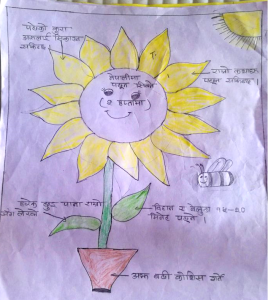Space to Grow Learning Spaces are designed to help children to engage with learning which has been disrupted by the Covid-19 pandemic and to equip children to make an easier transition back to schools as they reopen. They are also designed to provide psychosocial support for children as the pandemic has had a detrimental impact on their mental health, and by building children’s resilience and coping skills they are also significantly better able to re-engage with learning and education.
Methodology
Learning Spaces can take place in Covid-secure community centres, church buildings or other community spaces, and are open out of school hours. Learning Mentors work with small groups of children and offer psychosocial and learning support.
The main outcomes for children are:
- Children make progress in self-defined learning goals
- Children improve psychosocial wellbeing and coping skills
- Children have a positive attitude towards lifelong learning
- Children continue to engage with mainstream education where possible and are prevented from dropping out of school
Many resources are provided for use in the Learning Spaces, including the Resource Guide which explains how mentors can help children with their literacy and numeracy.
In each session the goal is to do a group psychosocial support activity and then have time for individual learning support. This could include helping children with homework, or other activities and games that help children in their literacy learning, numeracy skills, love of outdoor learning and collaborative learning. Although Learning Mentors are not expected to be teachers or teach children, they can help answer children’s questions, support them and help them to develop confidence and a growth mindset.

A Learning Journal is also provided to help keep track of children’s progress and achievements. Learning Journals provide a space for children to be creative and set their own learning goals which are represented as flowers. It is recommended that at the start children set up to 3 learning goals which could target literacy, numeracy and/or wellbeing. Children also reflect on their progress each week and the Learning Mentor records what skills/topics the child has learnt so that future teachers/mentors can build on what they have already learnt. This is also a way that parents can be engaged in what their child is learning about.
To record progress the Learning Mentors undertake two surveys with the children that they are mentoring – a baseline survey when the child first enters the Learning Space and an end of term survey with the child 12 weeks in.
